Key specs:
CPU: Intel Core i5-1240P, Core i7-1260P or Core i7-12700H
GPU: Intel Iris Xe
RAM: 8 GB or 16 GB
Storage: 512 GB or 1 TB
Screen size: 14 in 2,560 x 1,440 IPS or 2,880 x 1,800 OLED
Weight: 2.75 lbs (1.25 kg)
Dimensions: 12.63 x 8.3 x 0.62 in (321 x 211 x 15.9 mm)
The best student laptops deliver performance, portability and value for money in equal measure, and the Acer Swift 3 looks like it could be ideal for campus life — on paper, at least.
Acer’s latest laptop pairs a fast Intel processor with a high-resolution screen. The model we’ve reviewed costs $949 in the U.S. and £799 in the U.K.
This is the kind of laptop that could jump between the library, lecture hall and dorm without breaking a sweat, but the Swift also faces strong competition — the HP Envy 13 and HP Envy x360 13 (opens in new tab) are rivals, and if you’ve got a bit more cash then there’s also the Apple MacBook Air M1 (opens in new tab) to consider.
It’s time to find out if the Acer Swift 3 can become one of the best laptops for students (opens in new tab) — or if it’ll drop out before graduation.
Acer Swift 3 review: Design & Features
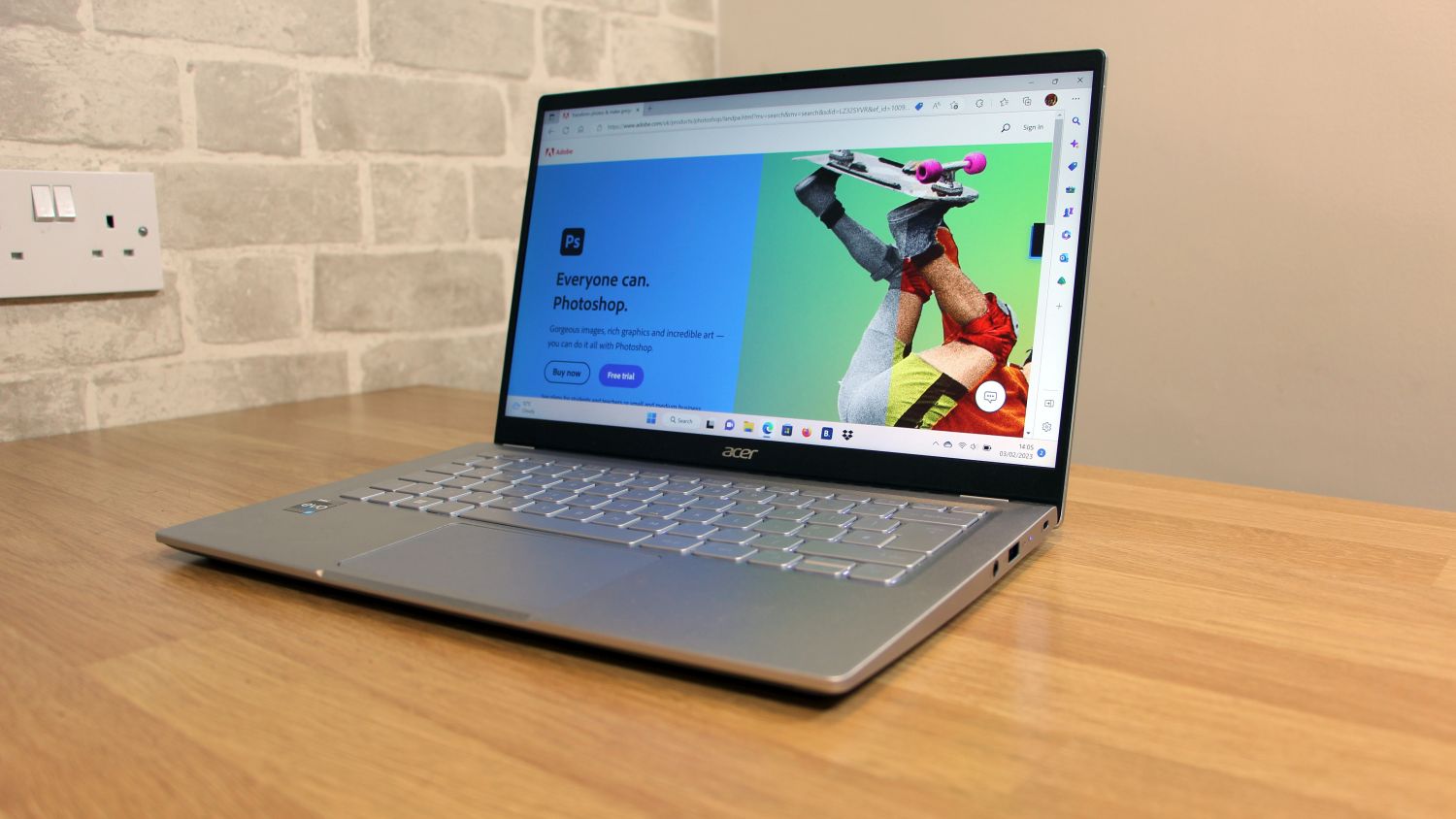
- It looks decent with reasonable build quality, and it’s lighter than rivals
- The Swift has plenty of ports — the only serious omission is a card reader
- The keyboard is fine, but easily beaten elsewhere
The Acer isn’t the most stylish notebook, but always looks smart. It’s made from attractive aluminium, the base tapers to a sleek edge, and the triangular hinge is pleasing.
The build quality is reasonable, too. There’s a little give in the display and base, but we’re not concerned because the Swift is still strong enough to survive being slung in a backpack. That’s impressive when you remember that this notebook weighs 2.75 lbs (1.25 kg), which makes it lighter than every one of its rivals.
If you’re really concerned about the Swift’s survival, then a fabric sleeve would keep it safe. And if getting a sturdy notebook is the key factor for you, then the MacBook Air M1 is an even more robust option.
Acer’s affordable rig comes with a variety of ports. It’s got a full-size USB 3.2 Gen 1 port on each side and one of those charges smartphones. The Swift also has two Thunderbolt 4 ports, with one needed to charge the laptop, and a headphone jack. Our only slight irritation is that those Thunderbolt connectors are very close together — use a larger peripheral in one and you might block the other.
The Swift also has an HDMI 2.1 output for connecting to a second screen if you want to watch something on a TV back at the dorm, and the power button has a fingerprint reader for extra sign-in security.
Internally, Acer’s rig has dual-band Wi-Fi 6E and Bluetooth 5.2, which is handy when virtually everywhere uses wireless internet, but you don’t get Ethernet. The webcam’s 1080p resolution offers crisp imagery for video calls, but the Acer doesn’t come with Windows Hello. There’s no card reader, either.
Overall, the laptop offers reasonable connectivity and easily outpaces the MacBook Air, but both of those HP Envy rivals deploy pairs of USB and Thunderbolt ports alongside microSD card readers.
The keyboard is acceptable for essays, but the buttons are soft and loud — the Apple and HP typing units are better. The trackpad is also small and feels a bit hollow, so that’s another ergonomic area where the Swift is strictly mediocre.
Acer Swift 3 review: Specs & Performance
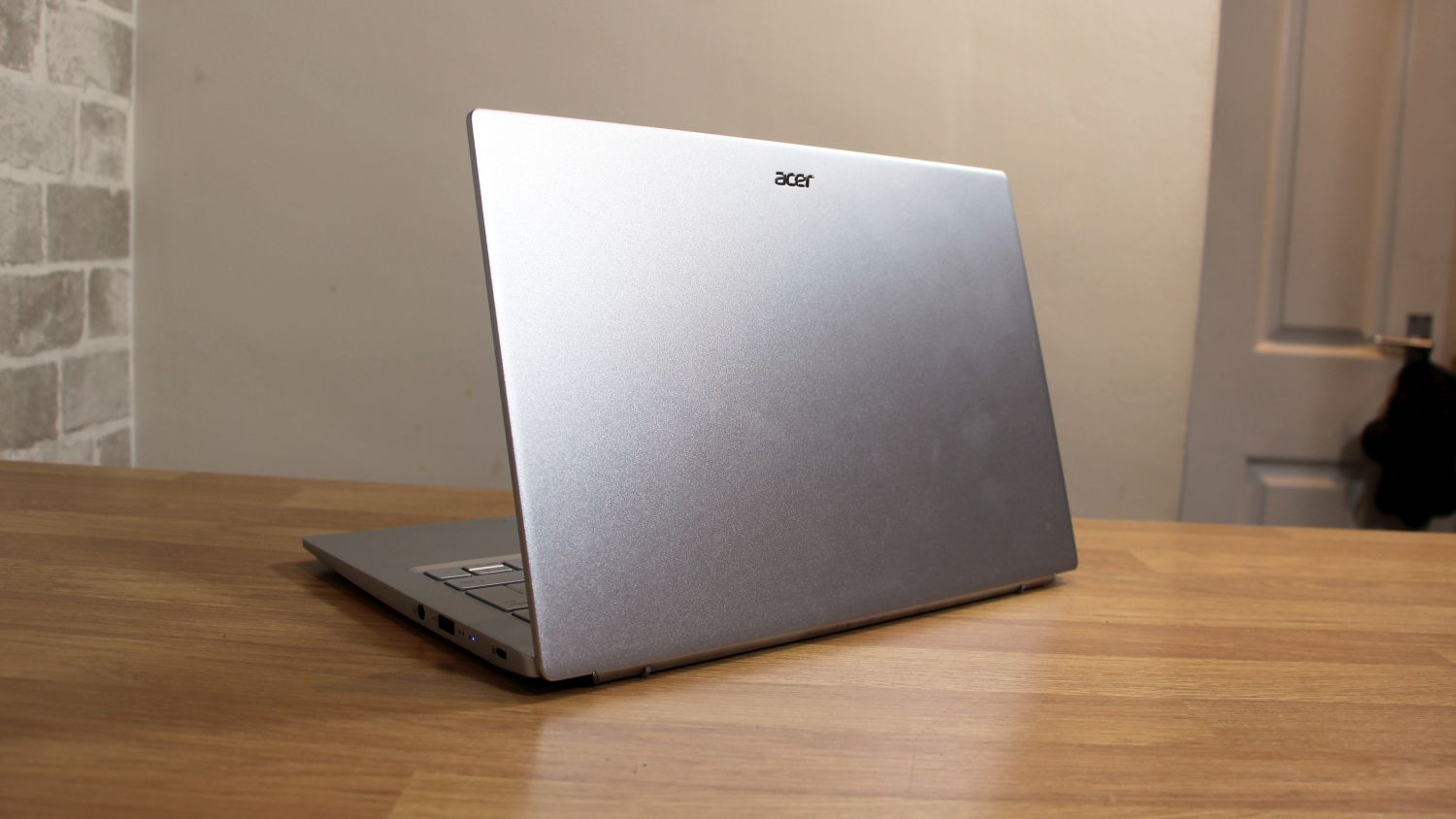
- The Core i7 CPU is faster than the silicon you’ll find inside any rival
- The cheaper Core i5 model is quicker than equivalent chips inside other machines
- The Swift is cool and quiet, but don’t expect any real gaming clout
Acer gave the Swift an Intel Core i7-1260P, and it’s easy to see why. This quad-core chip has a top speed of 4.7GHz and is built for slim, light notebooks.
The Swift’s 16 GB of memory is DDR4 rather than DDR5, and its 1 TB SSD delivers mediocre read and write speeds. It’s fine for everyday use, but not quick enough to surprise you with rapid loading times.
Despite some understandable limitations, the Core i7 CPU delivers in benchmarks. The Swift scored 1,714 and 10,297 in Geekbench’s single- and multi-core tests, and those are superb results. While there’s little to choose between the Acer and its rivals in the single-core test, that multi-core result is about 3,000 points beyond the MacBook and twice as quick as the low-power chips in HP Envy notebooks.
The Core i7 processor will handle as many browser tabs and Office apps as you can load. It’ll also tackle a bit of everyday photo and video editing. Ultimately, the Swift will cope with student workloads unless you need proper content creation, CAD or database ability.
During tough benchmarks, Acer’s notebook ran without making much noise and the exterior panels remained cool, which is impressive.
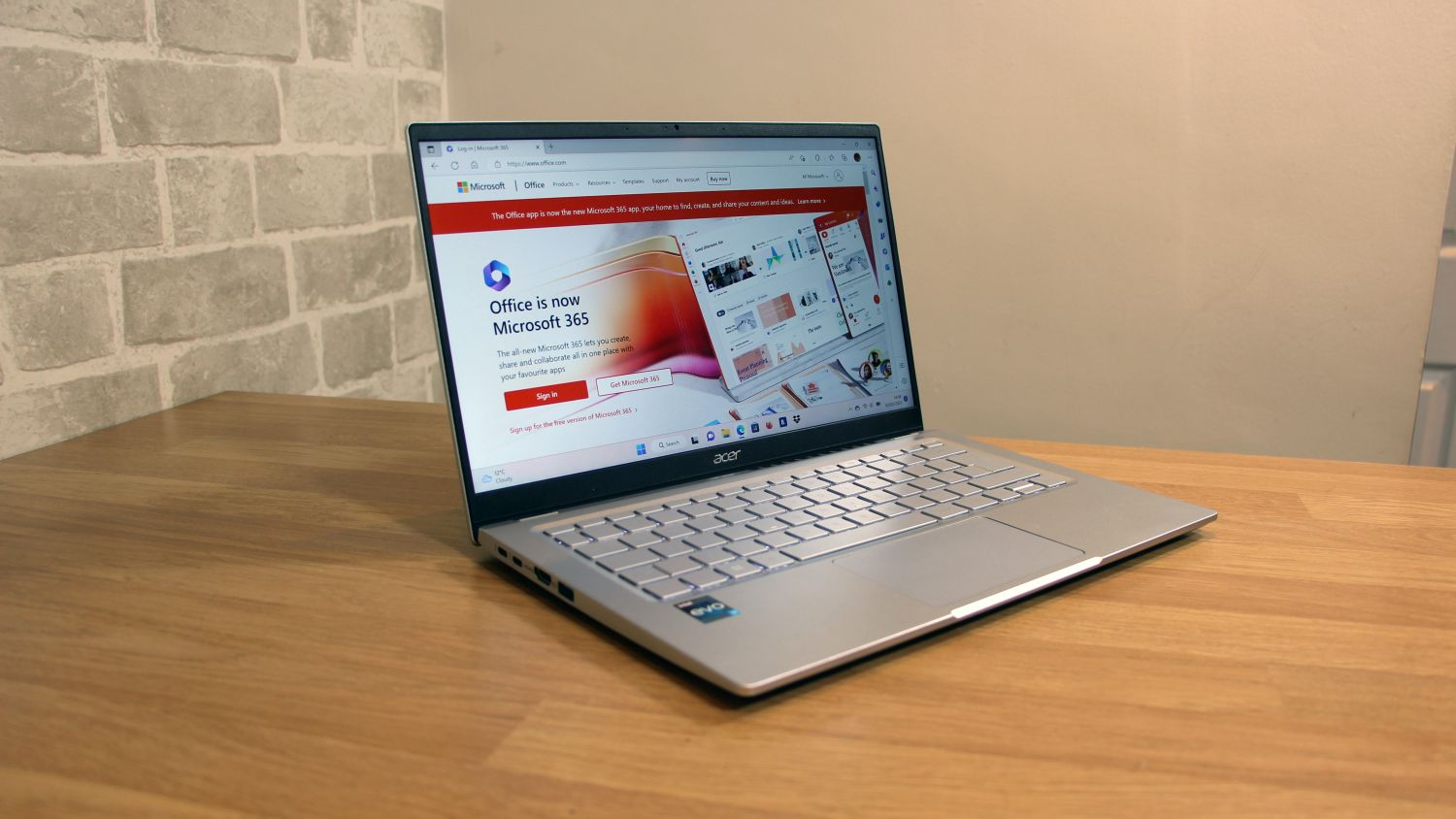
The Acer comfortably outpaces its rivals, and you’ve got options in terms of performance. The cheaper version uses a Core i5-1240P that’s still more than enough for browser and Office-based work — just don’t buy it if you need your laptop to handle content creation. For more grunt, the i7-12700H in the OLED model will scythe through any photo-editing task, though it’ll produce more noise and heat.
No matter which model you’re interested in, don’t buy the Acer if you want to play games after lectures. The Swift only uses Intel Iris Xe graphics, and that integrated core only runs basic titles. You’ll need a larger laptop with a proper Nvidia or AMD core if you want to game.
Acer Swift 3 review: Screen & Speakers
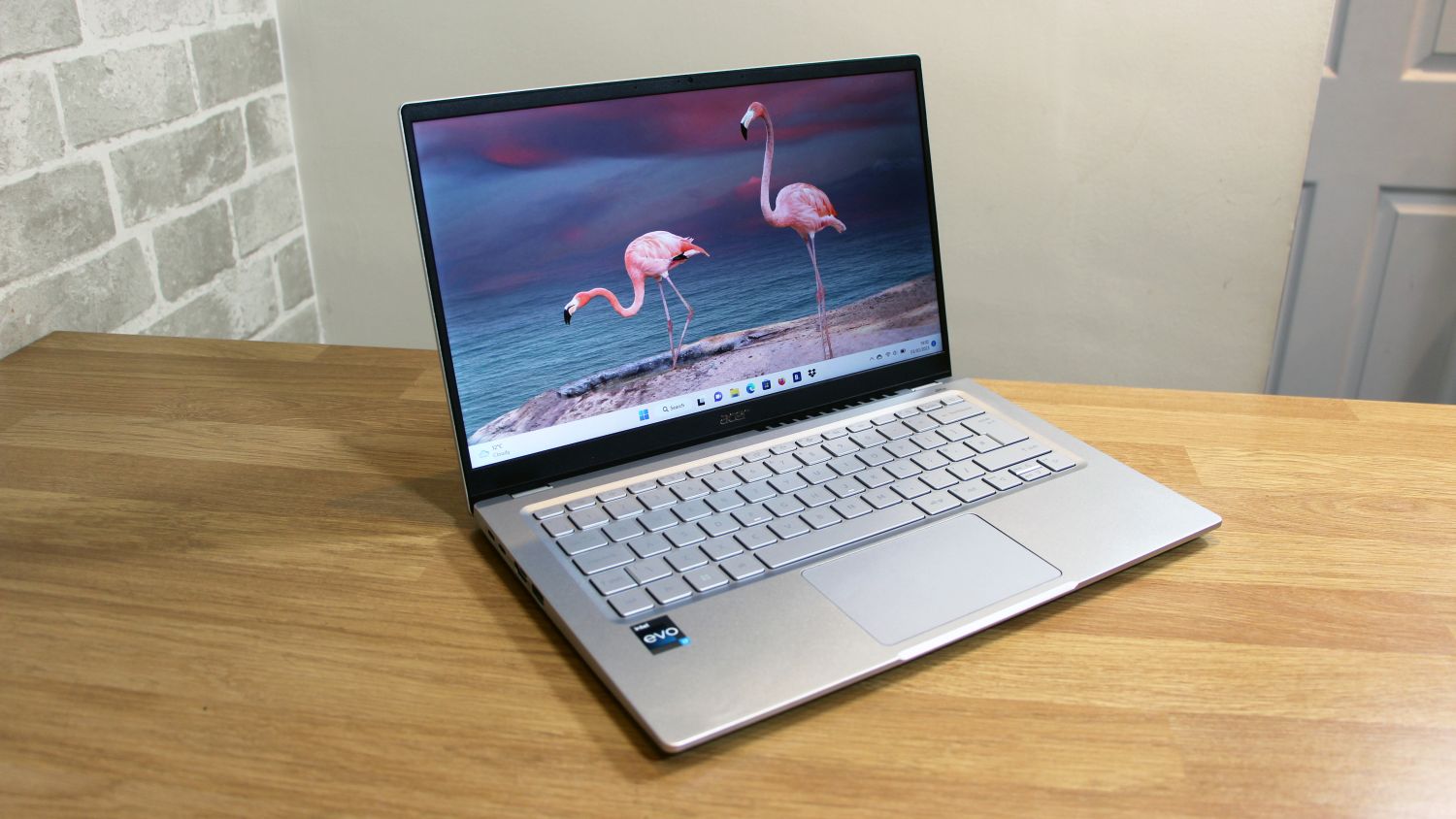
- The high resolution and great contrast deliver vibrancy and space in any task
- The screen can handle everyday creative work and media viewing, but nothing more
- Some rivals are better, and the tinny speakers are disappointing
You’d expect a budget laptop to have a bog-standard screen, but that’s not the case here. The Swift’s 14 in display has a surprisingly high resolution of 2,560 x 1,440 IPS, which makes it easier to multi-task and work effectively.
The contrast ratio of 1619:1 is superb, and means that this screen has loads of punch and top-end vibrancy, while the black point is impressively deep. Add in the accurate colors and you’ve got a panel that makes movies, TV shows and web pages look good.
There are some areas where the Swift’s screen is a bit limited. Colors may be accurate, but the Swift can only render the sRGB color gamut, so you’re out of luck if you want to view HDR content or use the Adobe RGB space.
The brightness level of 340 nits is fine for indoor use, but not high enough for the great outdoors. Think twice about buying this laptop if you spend lots of time working outside.
The tinny and underwhelming speakers aren’t great either. They’re fine for background music, but even then you’d be better off with an affordable Bluetooth speaker.
You’ll get better speakers on the two HP rigs and the MacBook. Plus, the Apple notebook and HP Envy x360 13 both have better displays than the Acer, thanks to a higher resolution on the former and OLED hardware on the latter.
The Acer is available in the U.S. with a 2880 x 1800 OLED panel for that OLED magic. And it’s a great screen, but it’s only available in the U.S.
Acer Swift 3 review: Battery life
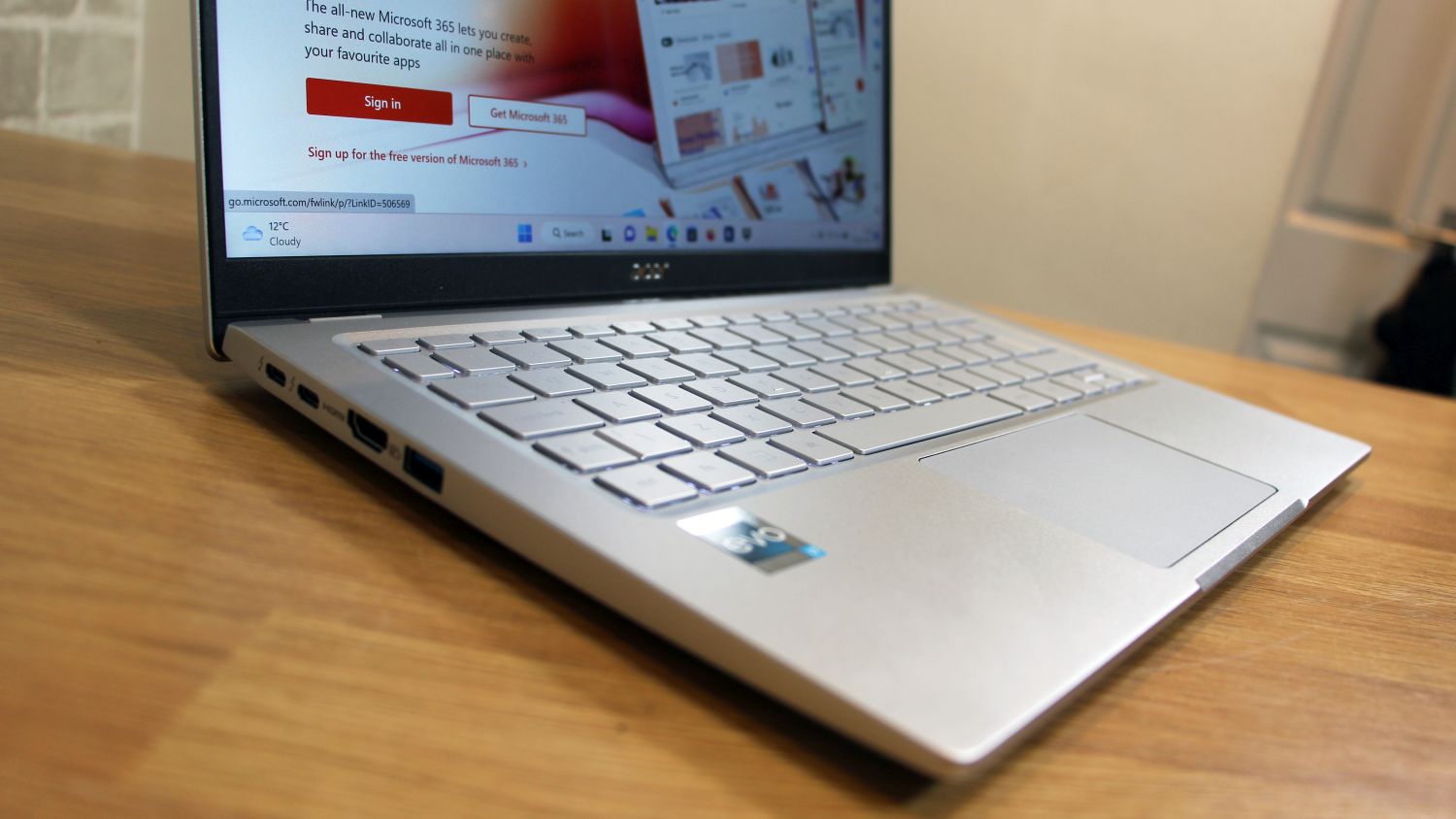
- Expect eight or nine hours if you use this notebook for tougher work tasks
- In more modest situations you’ll get up to 14 hours
If you use everyday work applications with the brightness ramped up then the Acer will last for around eight hours. Expect around nine hours of battery life if you drop the display brightness.
Keep the brightness low and only run low-intensity tasks such as media players or office apps, and you’ll get a lifespan of around 13 or 14 hours from the Acer. That’s only moderate battery life. The laptop won’t make it through a full day of work or lectures unless you’re careful about brightness levels and app use.
The MacBook Air M1 is comfortably better when it comes to battery. We got 15 hours of work from the Apple rig.
Acer Swift 3 review: Price
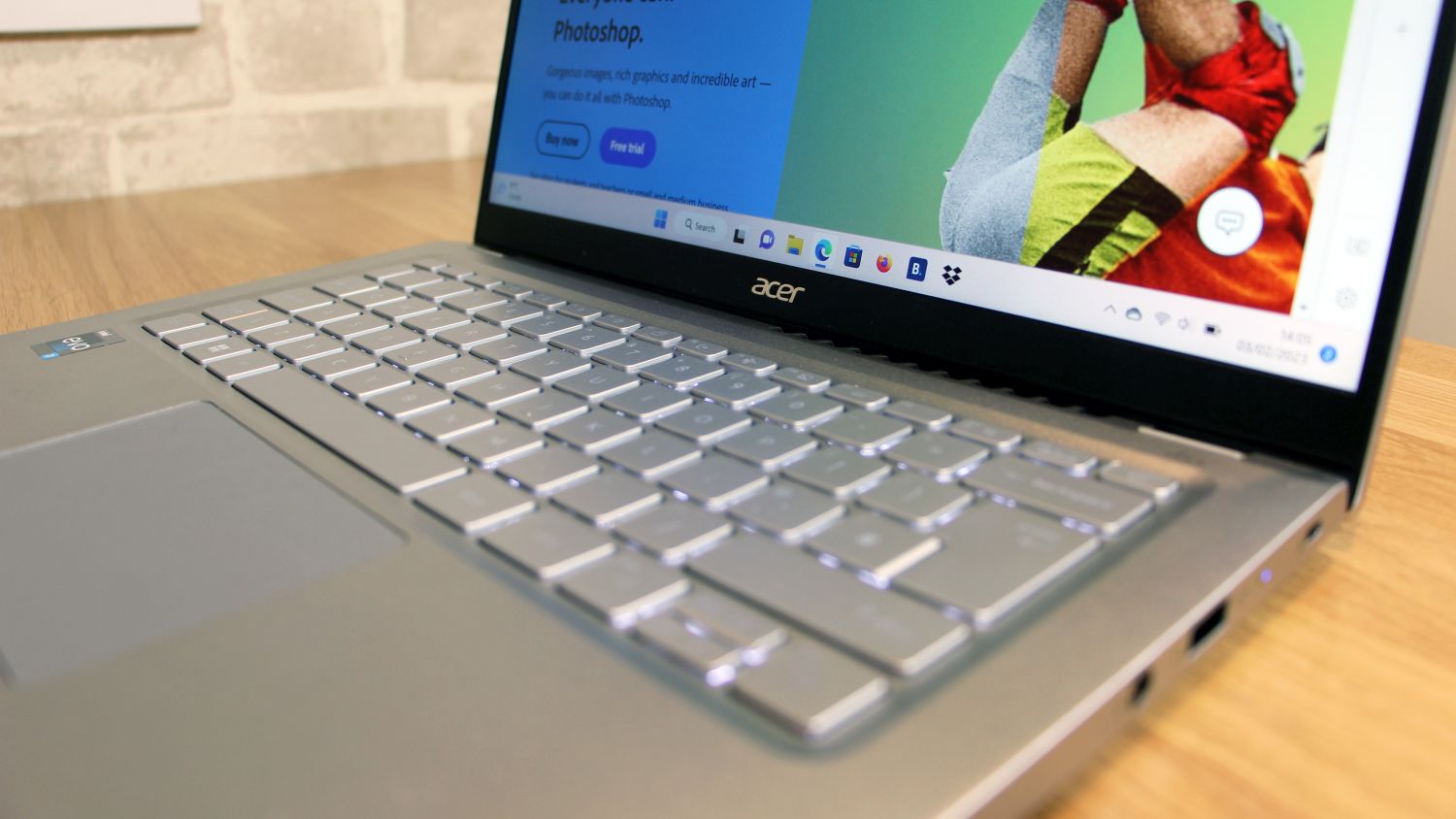
We’ve reviewed the Swift’s Core i7 specification, which will set you back $949 in the U.S. and £799 in the U.K. The Core i5 version only costs $850 and £599. If you’d like the U.S. exclusive OLED model with the faster Core i7-12700H, expect to pay $1,199.
The Swift prices are decent. For comparison, the MacBook Air M1 starts at $999 and £999, so it’s pricier and slower than Acer’s rigs. Apple’s machine does, however, offer a better screen unless you pay more for the OLED Swift.
The HP Envy 13 costs $719 or £1,149, but even at the lower U.S. price we can’t recommend anyone buy that laptop — it has an older and weaker processor.
The HP Envy x360 13 costs $899 or £749 for its Core i5 model and $1,199 and £1,069 for the Core i7 version. That’s more than any non-OLED Acer laptop and it’s worth considering if you want a convertible laptop with a touchscreen, but bear in mind that you’ll lose out on processing power.
Should you buy the Acer Swift 3?
No affordable laptop gets everything right, but the Acer Swift 3 does a decent job in many key areas.
The Core i5 and Core i7 processors deliver more power than rivals, and its perfect if you want a notebook to handle every facet of student life. The high-resolution screen improves versatility, there’s plenty of connectivity, and the Acer is lighter than the competition, so it’s easy to carry around.
If you prize battery life, screen quality or style, then consider looking elsewhere. The keyboard and trackpad could both be better too. But given the Acer’s price, these are unsurprising compromises, and none are ruinous.
The Acer Swift 3 is a great student laptop and a good buy for anyone who needs a compact, affordable computer.
If the Acer Swift 3 isn’t for you?
If battery life is a key concern, then the Apple MacBook Air M1 (opens in new tab) is the best option out of the rigs we’ve mentioned here. That laptop also has great screen quality and a satisfying keyboard.
The HP Envy x360 13 (opens in new tab) is our other recommendation. Its convertible design and OLED touchscreen add versatility, and there’s plenty of ports. However, the Envy’s internals don’t offer the same power as the Swift.





